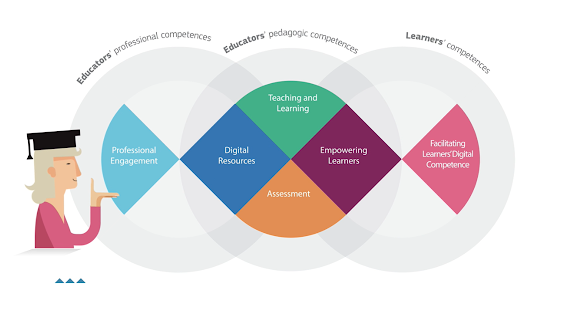Project materials II
The other part of the project was learning material for teachers to learn about the assessment tools - introduction of using digital technologies to create a simple assessment. The material is created by Digiloping teachers II team and consist of: Introduction: Overview of the course content Unit 1. Formative and summative assessment Unit 2 . Quizzes, polls and digital surveys Novice level - Mentimeter, Kahoot, Quizziz, Poll Everywhere Independent level - Padlet, AnswerGarden, Socrative, Google Forms Proficient level - Quizlet, SurveyMonkey, Wizer:me Conclusion: Reflection and next steps The course material is available here .



